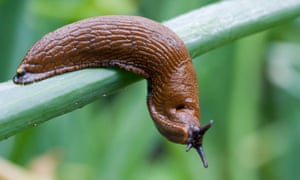via OUP Blog by Joseph McGonagle

French Election: Celebrations at The Louvre, Paris” by Lorie Shaull, CC BY-SA 2.0 via Flickr.
Metropolitan France lies at the crossroads of Western Europe. Thanks to its long and rich history of welcoming migrants, it’s one of the most cosmopolitan European nations. Across that continent, it’s also where the largest Jewish and Muslim population reside. So when you watch a French film or TV series, you’d expect to see that diversity on screen, right? Wrong. Despite some high-profile minority ethnic figures, French society’s ethnic diversity still struggles to be widely represented across contemporary French visual culture. How can we explain this? We need to look at the chief political philosophy that underpins French society – French republican universalism – to understand why representing ethnic diversity proves so problematic.
Continue reading
=============================
via Boing Boing by Caroline Siede

I stumbled across this great Hello Giggles post highlighting a trend in which body-positive Instagrammers reveal just how different their bodies look in posed vs. relaxed photos taken moments apart. The side-by-side photos serve as an important reminder of just how manufactured our culture’s idea of “perfection” is. As Bodyposipanda puts it, “We sure as hell don't need to compare ourselves to anybody's highlight reel, after all, the model in the magazine doesn't even look like the model in the magazine most of the time.” Some of my favorite photos are below and you can see the rest on Hello Giggles.
See for yourself
=============================
via Arts & Letters Daily: Claire Messud in The New York Review of Books
Daily, I slice bread with my maternal grandmother’s bread knife. Neither beautiful nor valuable – its handle scored white melamine, its wide serrations still sharp – it connects me to my mother’s hands (that used this knife) and to my grandmother’s hands (smaller than my mother’s, arthritic already when I was born); to my grandmother’s kitchen, beloved in my childhood; and to the long-ago morning light that filtered through the sunroom into that kitchen, in a long-sold house, in a far-off city. All this is present when I take it up and tackle a loaf. No other knife will do.
Matisse, unsurprisingly, had similar feelings about the objects of his daily life.
Continue reading
=============================
via Interesting Literature
The meaning of a classic story
‘Little Red Riding Hood’ was, Charles Dickens said, his first love. It is one of the most universally known fairy tales: if you were to ask 100 people to name a fairy tale, ‘Little Red Riding Hood’ would be one of the most popular answers. And much like a number of other fairy tales, which seem to have grown up around older oral tales (‘Rumpelstiltskin’, for instance, is reckoned to be a whopping 4,000 years old), ‘Little Red Riding Hood’ can be traced back to the 10th century when it was circulating as a French oral tale, and also existed as a fourteenth-century Italian story named ‘The False Grandmother’, though it only became popular under this name in the 1690s, when it appeared in the work of the French fabulist Charles Perrault. It rapidly established itself as one of the best-loved and familiar fairy stories in the western world. Yet what is the meaning of ‘Little Red Riding Hood’? Before we venture an answer to this – via an analysis of the story’s key features – it’s worth recapping the plot in a brief summary.
Continue reading
=============================
via Arts & Letters Daily: Michael Dirda in The Washington Post
The biographical note accompanying “Gaslight: Lantern Slides From the Nineteenth Century” describes Joachim Kalka as “an essayist, literary critic, and translator of authors such as Martin Amis, Angela Carter, G.K. Chesterton, Christopher Isherwood, and Gilbert Sorrentino.” Impressive as it is, that list only hints at the extent of Kalka’s literary sophistication. His freewheeling essays – adroitly translated by Isabel Fargo Cole – reveal not only an easy familiarity with the obvious masterpieces of German, French and English-language literature, but also a devotee’s appreciation of ghost stories, mysteries, classic films and comics. His subjects range from Wagner’s conception of the Valkyries in “The Ring of the Nibelungs” to the artistic legacy of Jack the Ripper to a mini-history of anarchist bomb-throwing.
Continue reading
=============================
via Boing Boing by David Pescovitz

Chinese researchers demonstrated quantum entanglement at a record distance, between a satellite and ground stations 1,200 kilometers apart. When objects are quantum entangled, their quantum states are linked. Measuring the state of one affects the state of the other. It's weird shit. So weird that Einstein called it “spooky action at a distance”.
The experiment by physicists at Shanghai's University of Science and Technology of China could eventually lead to highly-secure communications technologies in space and back on Earth.
Continue reading there is more to read and a video.
=============================
via the New Statesman by John Burnside

Some years ago, I stayed with friends for the summer in a quiet cottage surrounded by woods and green fields near Loch Tay. The cottage sat in a historic area where Robert Burns once dallied, leaving impromptu poems scrawled on hostelry walls in lieu of payment, and once, even farther back in the mists of time, a war zone where clan had brutally battled clan over nothing more than a few head of cattle. But on that first morning away from the city, rising early and heading out into the sun, I was blissfully unaware of such matters.
Continue reading
=============================
via 3 Quarks Daily: Frank Furedi in Spiked

Moral independence can only flourish in a society that trusts its citizens.
Contemporary society has a paradoxical relationship with the ideals of human autonomy and self-determination. These concepts are rhetorically upheld as values that are fundamental to liberal democracy.
Yet, in practice, the principle of autonomy is frequently dismissed as a myth or downsized into a relatively undistinguished second-order principal.
Today, as in the past, autonomy is criticised from an elitist and paternalistic standpoint that insists that people lack the capacity, time, resources or opportunity required for self-determination. Critics of autonomy point to the power of the media, the influence of consumer society or the pervasiveness of ideologies to argue that ordinary people are far too overwhelmed by these forces to think for themselves and act in accordance with their interests.
In one form or another, these illiberal arguments against autonomy have been directed at enlightened thinkers since the time of antiquity.
Continue reading
=============================
The origins of the term are a lot funnier than you think.
Word expert Graeme Donald told 5 live Breakfast that the use of the word to describe emails comes from Monty Python’s famous “Spam” sketch:
“Back in the early days of the computer and the internet the ‘anoraks’ who populated the computer world were avid Python fans. It was the script of that spam skit – the relentless spam, spam spam, spam, spam, and the way that unwanted mail just regurgitates out of the PC… the email connection was forged by the Monty Python sketch.”
=============================
Misunderstood molluscs: five reasons to love slugs
via the Guardian by Richard Jones

There’s much more to the slug than meets the eye. Photograph: Alamy
Slugs are much maligned. Having the temerity to wear their slime on the outside of their bodies, they are about as far removed from our notion of cute and cuddly as is possible without being tapeworms. But they are misunderstood and persecuted beyond necessity – with ecological knock-on effects for the slow-worms, thrushes, hedgehogs, badgers and other animals further up the food chain. True, some slugs will eat your plants, but naturalist Chris Packham recently made a plea for greater tolerance for the mollusc: with that in mind, here are five reasons to admire slugs: Continue reading
No comments:
Post a Comment